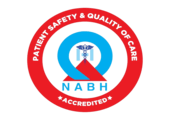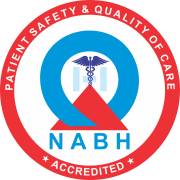Most of us have this tendency to delay or avoid a visit to the Doctor, which stems from our fear of the treatment, costs that it could probably incur, the disruption it could cause in our personal & professional lives etc.
Hence, we resort to either ignore the issue on hand or resort to self-medication. Practices which support self-medication are:
- Disbursement of drugs by the pharmacist over the counter, OTC (most commonly Ciplox or Gentamycin),
- Similar symptoms in the past which was treated by a doctor, and availability of the drugs at home,
- Overzealous relatives/friends who advise based on their personal experiences. There can be many such scenarios, but they can cause trouble in various ways.
Most eye drops give some relief to the person because of its water content & not necessarily due its drug. Since people can’t differentiate the two, they tend to continue using them, leading to various side effects. Learn the best practices on using eye drops properly before using them. Let us get some awareness about a few of these commonly abused & misused drugs.
Drugs containing Antibiotics
The most commonly prescribed OTC drugs are Ciplox (Ciprofloxacin) and Gentamycin. They are antibiotics, used to treat infections. Very few antibiotic drugs are effective in the eye. If they are used randomly, recklessly & unnecessarily, the bacteria might become resistant to these & other related drugs, which might lead to anti-microbial resistance, which is a major global issue.
When this happens, these antibiotics might not work when they are desperately needed, for example, in an infection, or injury, etc & this leads blindness because of the uncontrolled infection. We have encountered occasional cases of infection, which are very difficult to treat because of this phenomenon.
Steroid containing drugs
The other drugs could be steroid containing drugs in various forms like drops, skin ointments, tablets, etc. They are generally prescribed for allergies, inflammation in the eye, and post-operatively. People feel comfortable when they apply them, and hence keep using them as & when required. This can lead to cataract, glaucoma, corneal opacities, retinal disorders like central serous retinopathies, which can cause irreversible loss of vision.
Long term use of steroid drops or ointments, particularly on surfaces where absorption can be high, like the skin of the face, eyelids etc can lead to side effects like weight gain, diabetes, hypertension. These drugs are even more dangerous.
Lubricating eye drops
The other class of drugs are lubricant eye drops or tear substitutes. They can be used fearlessly, but they need to be used judiciously & hygienically. Sometimes, they can mask the symptoms & delay your presentation to the Doctor. So, despite using these lubricants, if the symptoms don’t subside, visit the doctor at the earliest to avoid permanent damage.
There are other classes of drugs called as Non-Steroidal Anti-Inflammatory Drugs (NSAIDs), like Flurbiprofen, Bromfenac, etc. They are used in various diseases, and are generally safe, but when used over a long period can cause corneal thinning, which can lead major injuries following trivial trauma due to the weakening of the surface of the eye.
What precautions should you take?
Hence, it is always prudent & safe to use any of the drugs under supervision of your Doctor, & not otherwise. Nowadays, the availability of tele-consultation, & its legalisation by the Government has ensured that most of us can avail online consultation & confirm whether one can use a particular drug or not sitting in the comforts of our home/office.
So, let us be aware, responsible, & shrewd citizens & use the drugs judiciously. As they say in Kannada, Amrutha (elixir of longevity) can become poisonous if consumed in excess or unnecessarily. So, take care, & happy seeing.








